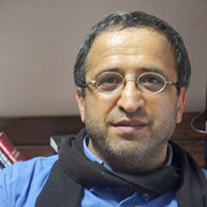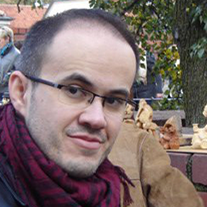The Situation in Country
Contrary to the relatively good situation of the financial sector and budget figures, economic growth, domestic saving and unemployment figures show that Turkey has suffered the global economic crisis. Since 2008, unemployment has either increased or fallen only marginally. Workforce participation is well below OECD and EU averages. The falling GDP from 2008 to 2010 hit disadvantaged groups hard. Moreover, since the recovery in 2011-2012 took the form of jobless growth, which increased the economic woes of less developed regions in particular, the economic imbalance among geographical regions in Turkey is widening. Economic constraints, especially the structural conditions of the labour market, have a large impact on living standards of poorer households. It is thus easy to imagine that macroeconomic deterioration during crises has a direct and significant impact upon the economic deprivation of households in poor neighbourhoods.
Previous Research Results
Poverty came to Turkish political and policy agenda of Turkey as a permanent item after World War II. The form and content of poverty, on the other hand, has changed considerably over the time. The migration from rural areas did not only bring the people into the cities but also widespread poverty. This rapid urbanization in the 1960s and 1970s through migration can be considered as a process of urbanization of poverty. In those decades the state remained largely absent and left the responsibility of tackling poverty to communities themselves. It is interesting that local communities were quite successful in their dealing with poverty thanks to their solidarity networks and the openness of the upward mobility channels.
With the rise of neoliberalism and the restructuring of the economy in an export-oriented and market-friendly way after 1980, poverty took a different form. The cities began to look like less promising for the urban poor as the upward mobility channels did not function well anymore. Likewise, the neo-liberal economic policies and the ideological inclinations associated with them visibly weakened solidarity ties in the poor neighbourhoods.
On top of these adverse conditions, economy was now been more vulnerable to economic crisis than it had been before. During the last two decades, Turkish economy suffered 3 major economic crises. The 1995 crisis resulted in a real decline in the incomes of lower classes whereas the 2001 crisis emerged as a banking sector crisis. Both crises led to massive devaluation of Turkish lira vis-à-vis foreign currencies. The economic crisis of 2009 had considerable effects on the Turkish economy even if it did not create such dramatic consequences as it did for some other European countries. Despite the seemingly sound condition of Turkish banking system and the relatively decent macroeconomic figures, there is evidence that Turkey felt the adverse impacts of the crisis seriously and the impact on the poor was particularly heavy.
Beginning with 1990s, Turkey witnessed the rise of a new form of solidarity networks around the religious based organizations and charities. Thanks to the backing of the state at national and local levels, these organizations have become quite influential actors in the field of poverty. With the coming to power of JDP, the new networks has turned into an integral part of clientelist policies where the government use the distribution of scarce resources strategically to obtain the consent of the poor for the very policies that hit them the most. Instead of promoting direct ways to alleviate poverty in the country, the government has increased the funds for indirect poverty fighting mechanisms and continued to support charities on the basis of political inclinations. As the government did not change this course of policy after the most recent crisis, the outcome has been a growing problem of poverty and increasing ethnic, sectarian and regional inequalities in how the burdens of poverty is shared.



